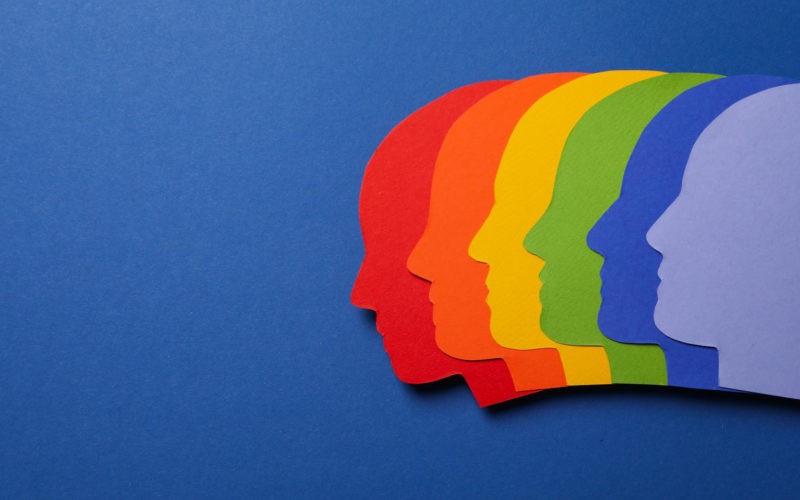Consumer psychology is a fascinating field that explores the mental processes and behaviors of consumers. Understanding these psychological dynamics has become crucial for marketers and businesses aiming to create effective marketing strategies and improve customer satisfaction.
Research from Harvard Business School reveals a startling insight: 95% of purchasing decisions occur in the subconscious mind, highlighting the intricate nature of consumer behavior and the importance of understanding these hidden drivers.
The Buyer’s Journey: A Psychological Progression
Awareness Stage
The journey begins when consumers first recognize a need or problem in their lives. During this initial stage, they might not actively seek solutions, but their minds are processing various brand messages and information subconsciously.
Consideration Stage
As consumers move into this stage, they become more actively engaged in research and comparison. PowerReviews reports that 99.75% of online shoppers read reviews during their decision-making process, emphasizing the critical role of social proof in modern consumer behavior.
Decision Stage
This stage represents the culmination of the mental journey, where consumers commit to a purchase after weighing various factors including price, product features, brand reputation, emotional connection, and social proof through reviews.
Retention Stage
The journey continues well beyond the purchase. Harvard Business Review found that a mere 5% increase in customer retention can lead to profit increases ranging from 25% to 95%.
The Role of Emotions in Decision-Making
When a brand triggers positive emotions, consumers are more likely to feel a personal connection, which in turn builds loyalty. Advertisements that tell relatable stories or use humor often leave a stronger impression than those focused purely on product features. This emotional connection is crucial because it creates lasting brand memories, builds stronger customer loyalty, influences subconscious decision-making, and drives word-of-mouth recommendations.
The Power of Social Proof
Humans are inherently social creatures, and much of our behavior is influenced by others. According to BrightLocal, 91% of consumers trust online reviews as much as personal recommendations. This social proof manifests through customer reviews, testimonials, influencer endorsements, user-generated content, and expert opinions, all working together to build trust and credibility that’s hard to achieve through traditional advertising alone.

Cognitive Biases in Shopping Behavior
Anchoring Effect
When presented with a higher initial price, consumers tend to perceive subsequent lower prices as better deals. For example, seeing a product “originally priced at $100 but now $50” can make the discount feel more substantial.
Scarcity Principle
Labels such as “limited edition” or “low stock” create a sense of urgency, encouraging consumers to act quickly. Scarcity not only signals exclusivity but also enhances the perceived value of products.
Research indicates that scarcity can boost a product’s perceived value by 20% to 50% or more. For example:
- Limited edition items often see substantial price premiums due to perceived exclusivity.
- Seasonal or time-limited promotions can drive higher willingness to pay.
Loss Aversion
Consumers are more motivated to avoid losses than to achieve gains. This principle is often used in marketing through phrases like “Don’t miss out!” or time-limited offers, creating a sense of urgency that drives action.
Digital Psychology: How Technology Shapes Choices
The digital revolution has fundamentally altered the consumer landscape. Epsilon’s research indicates that 80% of consumers are more likely to make purchases when brands offer personalized experiences. Website design plays a crucial role — 38% of users will leave an unattractive website. Prioritize clear navigation, appealing visuals, and fast loading times to engage potential customers.
Modern technology enables personalization through advanced analytics tracking, behavioral heatmaps, customer journey mapping, and AI-powered recommendations, allowing businesses to create more targeted and effective marketing strategies.
Practical Strategies for Leveraging Consumer Psychology
Building Emotional Connections
Successful brands invest in compelling storytelling, create emotional advertising campaigns, develop relatable content, and foster community engagement to create lasting relationships with their customers.
Optimizing Social Proof
Businesses can build trust by showcasing authentic customer reviews, featuring user-generated content, leveraging influencer partnerships, and displaying trust badges and certifications throughout the customer journey.
Strategic Urgency
Creating limited-time offers, highlighting exclusive products, showing real-time inventory levels, and using countdown timers can effectively drive consumer action while maintaining authenticity.
The Influence of Personalization
Modern businesses can tailor content to user preferences, customize email communications, provide personalized recommendations, and create adaptive user experiences that resonate with individual consumers.
Ethical Considerations
The power to influence consumer behavior comes with significant responsibilities. Businesses must maintain transparent data collection practices, use information responsibly, and implement clear privacy policies. Ethical marketing requires honest advertising claims, fair pricing practices, authentic social proof, and responsible persuasion techniques.
Conclusion: The Art and Science of Influence
Understanding consumer psychology is not just about increasing sales—it’s about building meaningful connections that translate into long-term loyalty. By tapping into the principles of human behavior while maintaining ethical standards, businesses can create strategies that not only attract customers but keep them coming back.
Consumer psychology reveals that every purchase decision involves complex mental and emotional processes. By understanding these factors and adhering to ethical marketing practices, businesses can foster lasting relationships and drive sustainable growth.












